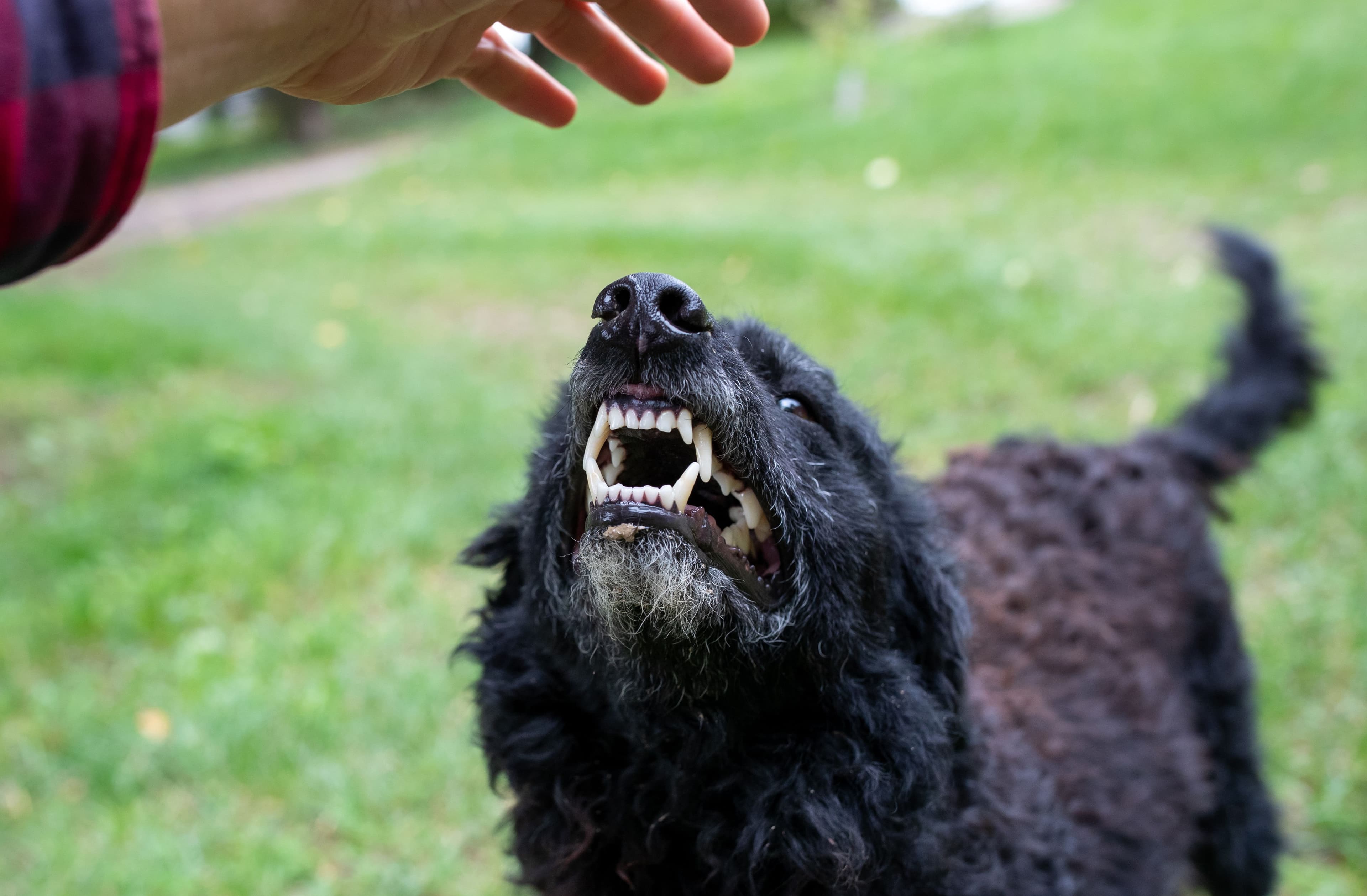
The Legal Process of a Dog Bite Case

If you suffered injuries from a dog attack, you need to find legal support as soon as possible. A dog bite lawyer can help you seek maximum compensation for your financial losses while protecting your legal rights. So, what will the process of a dog bite lawsuit or injury claim look like?
Step 1: Securing Legal Representation
The first step in the legal process of a dog bite case is securing representation. After calling 911 and seeking medical attention for immediate injuries, you should find a lawyer as soon as possible.
During the initial consultation, the attorney will go through all of your case details to provide you guidance on how the process will work moving forward. At this point, they will give you an idea of your case’s viability, potential compensation numbers, how long the process should take, and legal fees.
Contact our team today so we can fight to help you get the compensation you deserve.
Step 2: Proving Liability
In any dog bite case, your legal team must determine liability. If you want to seek compensation from insurers or through a lawsuit, you will need to prove that another party was liable for the accident.
Your attorney can use various pieces of evidence, such as dog attack statistics by breed, previous bite histories, or state laws, to hold various parties accountable.
Holding the Owner Accountable
Owners can be held liable for dog bite cases in many scenarios. In almost all states, if the owner knew (or should’ve known) their dog was dangerous and failed to take preventative actions, you can sue them for creating a hazardous situation.
Dog owners may claim that their pet has never been aggressive before or that you provoked its actions. Because of this, your dog bite lawyer must be prepared to navigate complicated state laws and potentially prove negligence for a successful lawsuit.
State Laws on Dog Bites
Laws on dog bite cases vary between states. Some states require you to prove the four basic elements of negligence to sue dog owners after a dog bite.
In states following the “one-bite law,” with negligence requirements, for example, you must prove that the owner knew their dog was dangerous but took no action to prevent the attack. To do so, you must submit records of the animal’s previous aggressive history. These states keep county records on animal bites and complaints that you would need to leverage to support your claim.
Proving the four elements of negligence requires evidence to support the following:
- The dog owner owed a duty of care: The dog owner was aware of their dog’s previous aggressive behaviors and was in a public setting where they should have secured their pet so it wouldn’t harm anyone.
- The dog owner breached that duty: The dog owner failed to take certain actions, like keeping their pet on a leash, using a muzzle, etc.
- That breach directly harmed you: The owner’s inability to secure their aggressive dog directly led to your injury. You didn’t inherently provoke the dog or harm it.
- That harm caused damages: The accident directly caused the damages for which you’re seeking compensation.
The other main law used in many states is the strict liability rule. The strict liability does not consider the animal’s previous history. In strict liability states, your attorney must only prove that an animal bit you and caused you harm, regardless of the animal’s history.
Other Parties That Can Be Held Liable
Numerous parties can be responsible for dog bite accidents. For example, if you live at an apartment complex that bans large dogs and you were bit by an occupant’s 90-pound German Shepherd, you may be able to sue the property for its negligent management.
In some cases, the dog owner’s insurance or lawyer may claim that you were partially liable for the accident. If you assume any legal liability for the accident, you may be barred from collecting compensation, or your compensation may be reduced, depending on your state. Because of this, you must work with a highly experienced attorney who can help you navigate the claims process carefully.
Step 3: Seeking Compensation for Damages
The next step in the legal process of a dog bite case is seeking compensation. In injury claims for dog bites, you can typically seek compensation for the following types of damages:
- Past, present, and future medical expenses
- Lost wages or earning capacity
- Disability or scarring
- Pain and suffering
Your dog bite lawyer can help you calculate the total costs of your current damages plus your potential future costs to determine your maximum compensation. During this process, your legal team will gather supporting medical records, hospitalization bills, diagnoses, and more as evidence for your claim.
Free Consultation 24/7, call (844) 343-9609
Step 4: Negotiating With Insurers vs. Escalating to Court
You have two primary options when seeking compensation. First, you may negotiate a settlement from the liable party’s insurer.
Many people carry liability insurance in their homeowners’ or renters’ policies to cover accidents like dog bites. Insurance organizations may offer you settlements to avoid bringing the case to court. You can negotiate these settlement offers, but once you accept an offer, you will no longer be able to sue the liable party over this case.
Your dog bite lawyer can help you negotiate with insurers to seek maximum liability for your claim. In some cases, though, the other party’s insurer may not be willing to meet a reasonable number. If this occurs, you may need to escalate to court, which brings us to the second potential option.
You may also choose to sue the other party by opening a civil lawsuit to hold the dog owner (or other liable party) monetarily accountable for their actions. Your dog bite lawyer can represent your case in court, presenting all evidence to help you seek maximum compensation for your losses.
Call (844) 343-9609
Seek Maximum Compensation for Your Losses Today
If you were injured from a dog bite, call Accident Hotline today at (844) 343-9609 to be connected with experienced attorneys who provide legal assistance for dog bite cases.
Blog Posts:

The Role of Expert Witnesses in Injury Litigation
Why Expert Witnesses Matter in Personal Injury Cases In personal injury litigation, facts alone are often not enough. While evidence like medical records, photographs, and witness statements paint part of the picture, juries and insurance companies frequently need context and explanation to understand the full scope of an injury and its impact. This is where expert witnesses play a pivotal role. Expert witnesses are professionals—often doctors, engineers, economists, or accident reconstruction specialists—who provide testimony based on their specialized knowledge. Their objective is not to advocate for one side but to clarify complex issues that require professional interpretation. In many cases, their opinions help bridge the gap between evidence and understanding, making them critical to achieving fair compensation.

How Insurance Companies Evaluate Injury Claims
How the Evaluation Process Really Works When you file a personal injury claim, the insurance company begins a process that is anything but simple. Behind every offer or denial, there's a calculated evaluation designed to protect their bottom line. Insurers use data-driven methods, past claim outcomes, and internal guidelines to assess how much—if anything—they believe your case is worth. The goal of the insurance adjuster is straightforward: to settle your claim for as little as possible while closing the file quickly. They'll review your medical records, accident details, and even statements you've made to determine liability and damages. The more organized and detailed your claim presentation, the harder it is for them to undervalue it.

The Dangers of Handling a Personal Injury Case Without Legal Help
Understanding What's at Stake After an accident, it's natural to want to resolve things quickly. Medical bills begin piling up, your work may be disrupted, and insurance adjusters often seem eager to "help." Many people believe they can handle their personal injury claim on their own—especially if the situation seems straightforward. But personal injury law is complex, and even minor missteps can lead to significant financial loss. Without professional guidance, you may underestimate your claim's value, miss critical deadlines, or make statements that insurers later use against you. The legal process is designed to protect both sides, and insurance companies have experienced professionals working to limit payouts. Without an equally skilled advocate on your side, you're at a clear disadvantage. That's why consulting a personal injury lawyer early in the process is often the difference between fair compensation and a costly mistake.

When Should You Switch to a Different Injury Lawyer?
Knowing When It's Time for a Change Choosing the right attorney after an accident is one of the most important decisions you'll make in your recovery journey. However, not every lawyer-client relationship is a perfect fit. Sometimes, despite your best efforts, you may realize that your current representation isn't meeting your expectations. Whether it's poor communication, lack of progress, or a sense that your case isn't being handled effectively, recognizing when to switch attorneys can make all the difference in the outcome of your claim. Switching to a new personal injury lawyer doesn't mean starting over from scratch—it means taking control of your case and ensuring it receives the attention and effort it deserves. Understanding what to expect from your legal representation can help you identify the warning signs that it might be time for a change.
Get an agent on the line in seconds
Responsive
Legal Assistance
Our personal injury attorneys advocate for the funds necessary to cover bills, secure medical treatment, recoup lost wages, and provide compensation for your pain and suffering.
Are you facing unfair treatment from the insurance company?
Do you know the value of your case?
Is the insurance company asserting that the accident is your responsibility?

We'll get back to you ASAP.
Get Your Free Consultation
You Pay Nothing Unless We Recover Compensation For You
